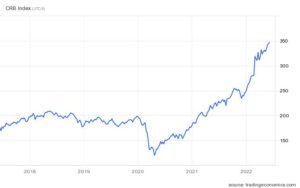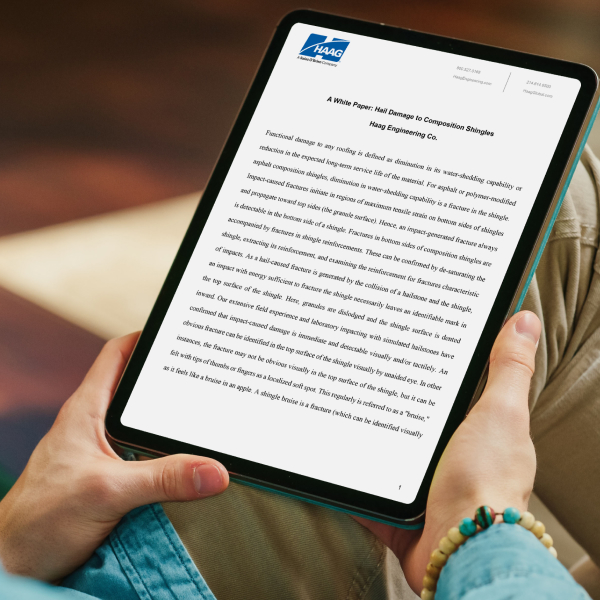Inflation – Not My Problem!
By Derek Sayers, Managing Director of Haag Canada / Construction Claims Group Practice Lead
You have a contract price and you are going to stick to it! As the owner of a project, often it seems that the simplest way to control escalating costs is to stick to the contract price. To take the attitude that “the contractor competitively bid and won the project, escalation in costs is clearly (and contractually) their problem!”.
 |
|
Source: Trading Economics, Commodity Index, https://tradingeconomics.com/commodity/crb |
Many contracts, even if not said explicitly, have at common law an implied clause that effectively protects the contractor from changes that “materially change” the nature of the contract. This protects a contractor from, for example, starting a garage project and ending up building a house without having any redress to amend prices and time.
But inflating labour and material prices is not a “material change.” True enough.
Contractors are aware of this and therefore when building their business, developing relationships with their suppliers, and bidding projects, contractors will have endeavoured to control for price fluctuations. The burning question is, what happens when those price fluctuations become extreme as they have recently?
Does the contractor have any means of redress? No. Unless the owner is prepared to voluntarily take some of the pain (i.e., cost) of inflation, it is unlikely that the contract addresses inflating costs. The contractor took that risk when they signed the contract.
However, the contractor can take action to help themselves in this scenario. Rather than just submitting a claim for escalation, the contractor can open a portion of their books and have an open and frank discussion with the owner.
It is one thing to hear that the price of a commodity has increased by 50% or 80%, but it is another when this can be translated by the contractor into an increase in the price of specific products. At the very least an owner who has been shown the difference cannot plead ignorance. Showing the owner what an item’s bid price and input prices were, and how much they’ve increased since, can only be a good thing under these circumstances.
What about contingency? Many projects are launched with a contingency amount held back by the owner. Does inflation constitute an occasion when the contingency should be used? Usually, this question would not even be asked. Contingency has been set aside to be used for changes that either the owner wants or the engineering demands, but never to offset inflation! Indeed, those financing the project would consider it very poor project management were contingency to be handed out so easily, and they would be right.
However, this situation is far from straight-forward. It may seem that all the owner has to do is sit tight and let the contractor sort out their own problems. But, at some point this will become the owner’s problem as well. Whether it is when the contractor starts claiming for every change and all changes seem to be much more expensive than they ought to be, or, even worse, when the contractor files for bankruptcy.
A bankrupt contractor will cost the owner significantly more than if the contractor had been able to complete the project.
Owners should take note and keep communication open with the contractor so they might understand how much financial pain the contractor is suffering. While it is not viable to simply keep paying more to help the contractor, the owner should explore how they might take some cost increase now in order to avoid more later. A good construction lawyer can draft an agreement that ensures any additional financial assistance is used to only benefit the owner’s project and not used for the contractor’s other projects or debts.
Many projects are currently in dire straits and it is easy to think that disputes will be settled equitably by an arbitrator or judge. Oftentimes though, neither party comes away from a dispute with the result they wanted or expected. It would be prudent for all parties to consider their positions when a dispute arises and ask themselves if there might be a better way.
It is something to be considered during these times of rapid inflation.

Derek Sayers, MRICS, MSCL, MIIC, is the Managing Director of Haag Canada and the Practice Lead for the Construction Claims Group at Haag Canada. Mr. Sayers has over 30 years’ experience as claims professional: project contracts manager, corporate claims manager and commercial specialist. In addition to this, he has built up the brand name and business of consulting firms in Canada since 2016, building solid and enduring relationships with owners, lawyers, and contractors across Canada. As Managing Director, Mr. Sayers leverages his expertise and leadership skills to serve Haag’s clients and expand the market reach of Haag Canada.
Any opinions expressed herein are those of the author(s) and do not necessarily reflect those of Haag Global, Inc., Haag Canada, or any Haag companies.

